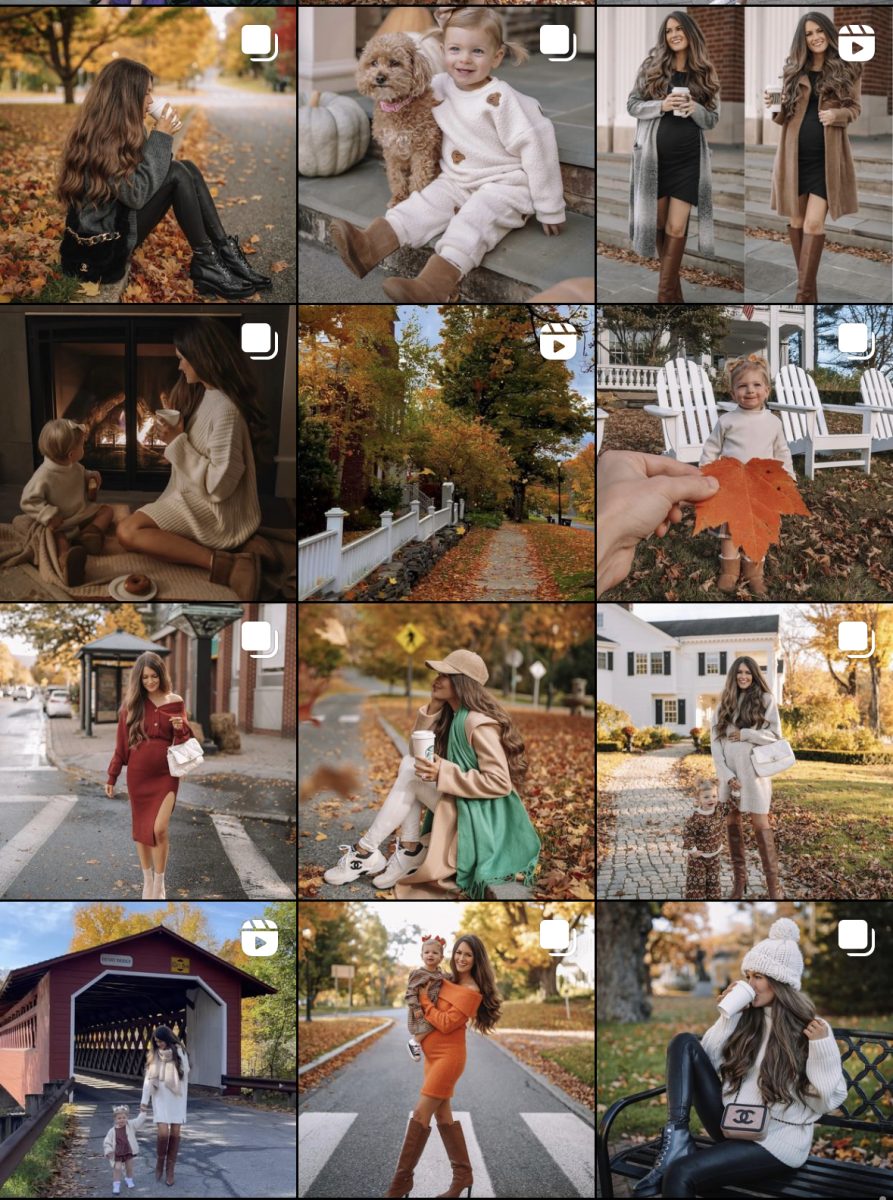After this pop-culture phenomenon gained relevance in 2019, the internet looks forward to celebrating ‘Christian Girl Autumn’ every fall. As the well-awaited season draws near, the origin of this trend is being discovered by many who consume the content online.
The theme of female empowerment was central to the later half of 2019. The first half was dominated by the summer anthem ‘Hot Girl Summer’, coined by a fan of rapper Megan Thee Stallion, while the later half of the year became captivated by its sister ‘Christian Girl Autumn’, a mockery of basic women. This expression was and continues to be associated with stereotypical basic women who enjoy pumpkin spice lattes and dressing up in oversized scarfs.
The Twitter user @blizzy, real name Isabella Markel, first came up with this slogan while browsing the internet to poke fun at the Christian girl aesthetic. Skinny jeans and name-brand bags made Markel cringe with embarrassment, but she considered it to be ‘camp’ or out-of-the-ordinary. This led her to post the original tweet of a picture that included two brunettes with identical hair, makeup, and big scarves posing for the camera with big smiles with the caption: “Hot Girl Summer is coming to an end, get ready for Christian Girl Autumn.” Both women were bloggers, but only one would make it out on top to be crowned the queen of autumn.
Caitlin Covington became a niche celebrity in the fall community in a heartbeat, and has remained beloved by the internet ever since, yet social media was not a terrain she had not explored before. Covington’s full-time job was being a social media blogger, creating content on her blog Southern Curls and Pearls since her college days at the University of North Carolina at Chapel Hill. Although Covington has been posting fall content since 2014, she has made an effort to make the autumnal season central to her brand.
Each year, Covington plans a trip to Vermont to get her iconic fall pictures, where she pays close attention to the fall foliage reports and plans her social media posts weeks in advance. Months of research and thousands of dollars went into the production of Covington’s shoot in Vermont. Brands like Saks Fifth Avenue and Nordstrom sponsored two of her posts for around $10,000-15,000.
Covington told The New York Times that she “loves fall. I am as basic as people think I am. Like, pumpkin spice, fall leaves, cardigan sweaters. And it’s really cool that now I’m known for that because it’s really truly who I am. If that’s basic, that’s okay. I’m okay with that.”
However, Covington was not the people’s princess at first. Christian Girl Autumn stood for what the majority of pop culture resents: conservative conformity. Many were frustrated with the lack of intellectual insight the picture supposedly represented. Online users made judgments simply based on looks, which is what led Covington to take back control of her narrative. She responded to two Twitter users right after the phrase became popular, writing that she was not a Republican and she was supportive of the LGBTQ+ community.
After those tweets, users changed their biases toward Covington, praising her for her unwavering support, as well as her ability to laugh at the meme and profit off of it. Yet, the frenzy behind Christian Girl Autumn revealed a deeper truth on image culture at large. We judge people based on their appearances, when their personalities could be a complete 180. The meme revealed that the internet really dislikes women who follow mainstream trends. The original take on Christian Girl Autumn is a sharper variation of the ‘basic’ trope. We, meaning the internet, seek for women who are not like the others, and are disappointed when they indulge in something we find too mainstream. Christian Girl Autumn also reflects assumptions about ways of life many of us would disagree on, while bringing up conversations on white female privilege.
Covington is now an icon for many in the LGBTQ+ community, along with being a pillar for the fall community. In September 2020, Covington donated $500 to a GoFundMe to help the founder of Christian Girl Autumn, Isabella Markel, cover the cost of transitioning. Nevertheless, the ownership and attribution of the meme comes into the question. Shouldn’t Markel also get a piece of the fame? Why is Caitlin Covington known for Christian Girl Autumn and not Isabella Markel?
Still, both Covington and Markel are influential, regardless which one’s face is more recognizable. Hot Girl Summer was about not pitting people against each other. Christian Girl Autumn is the same. Both trends highlight the fact that if you assume something about someone’s life, it does not mean it is always true. For bloggers like Caitlin Covington with their pumpkin spice latte and wide brimmed hat, Christian Girl Autumn is more than just a season – it is a state of mind.


